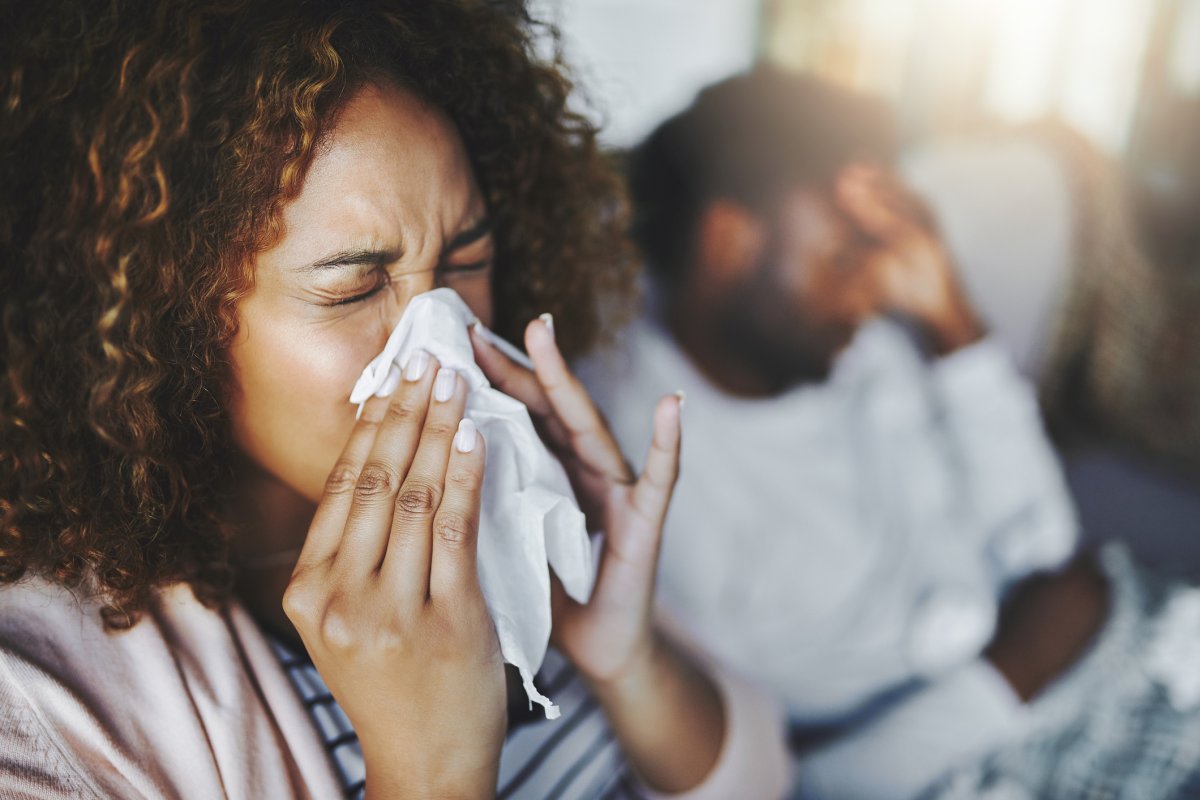With reports of the flu epidemic in the U.S. not slowing down anytime soon, health experts in Canada say influenza activity is still at its peak.

“In general, we can expect a very similar influenza season in Canada compared to the U.S. but not exactly the same,” says Dr. Isaac Bogoch, clinical researcher at the Toronto General Hospital Research Institute.
“This year has been more of a rough ride compared to prior years,” he tells Global News.
According to the latest data from the Public Health Agency of Canada (between the week of Jan. 21 and Jan. 27), there are signs that activity is starting to “slow down” in parts of the country.
READ MORE: Severe flu and the chance of death — How to tell if you need to see a doctor
And while Bogoch adds there is no way to predict what the flu season will look like by April, there have been some patterns that make this season challenging in particular.
The predominate strain this year, he says, is the H3N2 strain (an influenza A subtype) and a recent Canadian study has found the current vaccine’s effectiveness against H3N2 is 17 per cent. The Public Health Agency notes the majority of influenza cases continue to be caused by the H3N2 strain.
“When we have H3N2, we typically see more cases that are severe — typically more hospitalizations and unfortunately, we may see more deaths.”
In the U.S., 53 children have died this season, according to CBS News, and in Canada, there have been five deaths among children to date.
There have also been stories of young healthy people, including a 21-year-old aspiring trainer from Pennsylvania, suddenly dying from the flu.
“The number of people [dying], in general terms, is the elderly and very young,” Bogoch says. “But it’s not unheard of for healthy people to get quite ill … it’s not common but it certainly happens.”
The vaccine
The Public Health Agency reports the vaccine is 55 per cent effective against influenza B, and in general, the vaccine is 42 per cent effective overall.

- Gas prices surge in some parts of Canada. What’s causing pain at the pumps?
- ‘She gets to be 10’: Ontario child’s heart donated to girl the same age
- Bird flu risk to humans an ‘enormous concern,’ WHO says. Here’s what to know
- Ontario premier calls cost of gas ‘absolutely disgusting,’ raises price-gouging concerns
Bogoch adds that in general, when you look at data from the years past and the ultimate variable deaths from influenza, there are significantly more people dying from the flu who didn’t get the shot.
But is it too late to get a flu shot? Bogoch says when you get the flu vaccine, it takes about 10 days to two weeks for your body’s immune system to have a response.
“We’re already starting to see the number of cases of influenza go down, but you will still have some window of protection.”
He adds you should talk to a health-care provider because the window of protection is getting smaller and smaller.
READ MORE: 21-year-old aspiring personal trainer dies after flu causes septic shock
Dr. Vinita Dubey, spokesperson of Toronto Public Health, says in Ontario, if you didn’t receive the flu vaccine, you can opt for the quadrivalent flu vaccine for free.
This vaccine, the Centers for Disease Control and Prevention notes, can protect against four different flu viruses — two influenza A viruses and two influenza B viruses.
Protect yourself
Dubey adds influenza cases in Toronto, in particular, continues to be on the rise, with 1,452 reported cases in the week of Jan. 27. Putting things into perspective, she adds, the five-year average in previous years was 1,406 cases.
She says although the U.S. is seeing a lot more H3N2 activity, our activity in Canada is more reflective of the flu seasons in Europe and Australia.
READ MORE: Florida nurse’s rant about ‘funky flu’ season goes viral
And although activity may be slowing down, it doesn’t mean we’re safe from the flu season just yet, she adds.
Besides getting the flu shot and washing your hands regularly, she says Canadians should be doing their best to keep the elderly people in their lives healthy.
LISTEN: Do influenza numbers need more details?
Bogoch adds we also need to get out of the routine of going to work sick.
“Nobody needs to go to work to infect other people.”




Comments